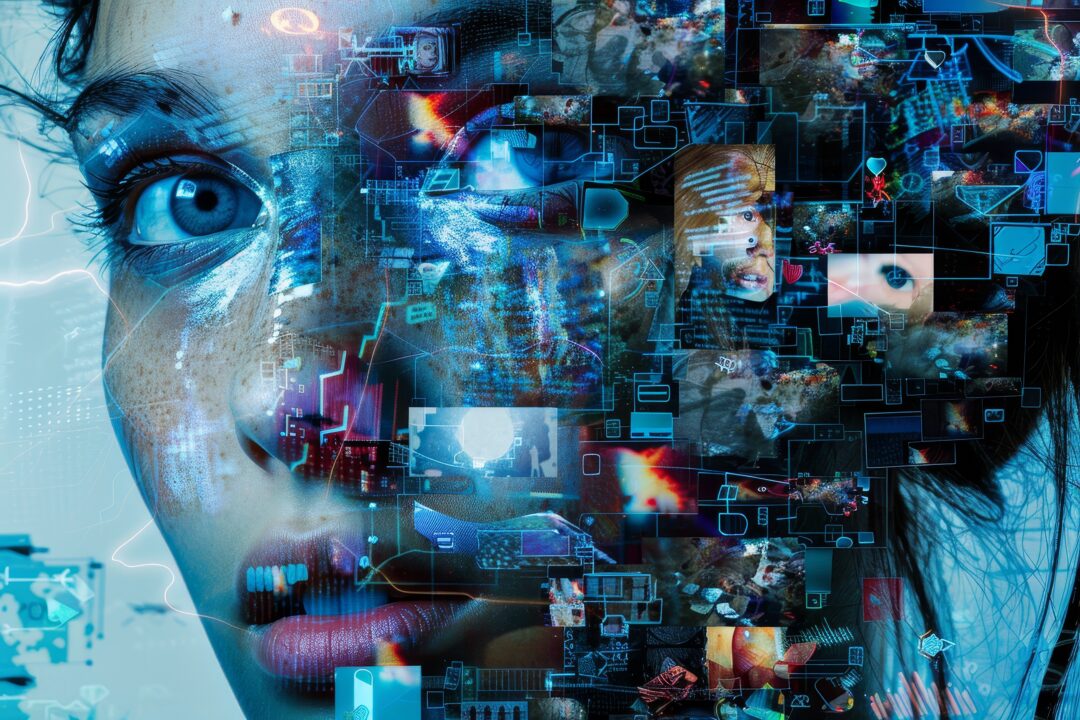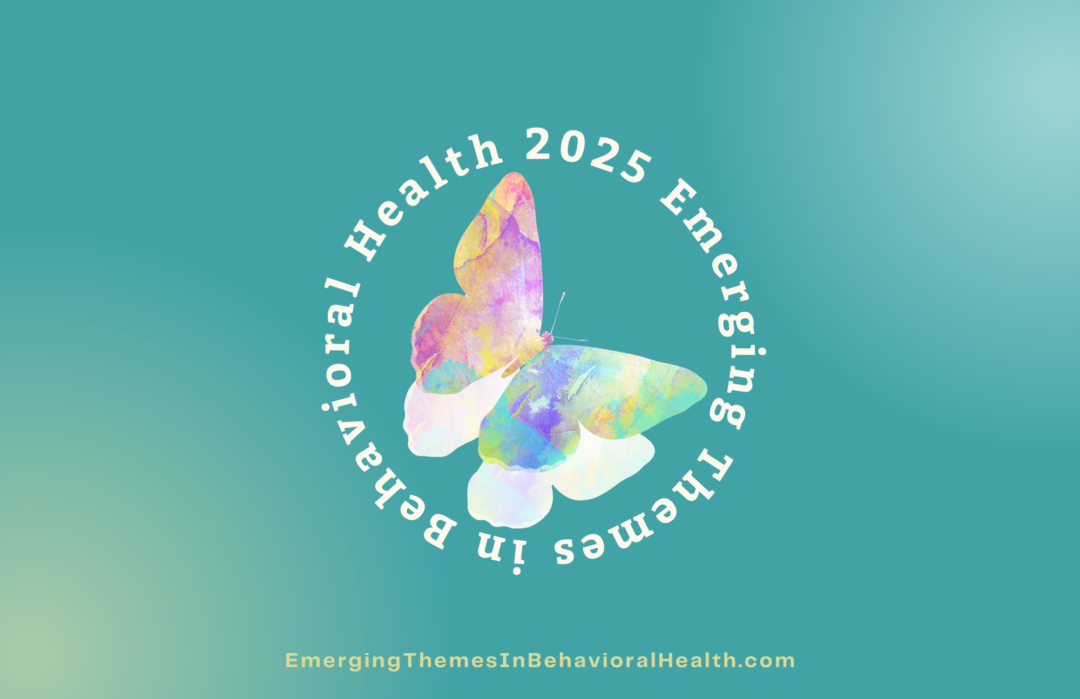Mental health treatment has come a long way—from misunderstood, stigmatized treatments to a vibrant field powered by innovation, compassion, and cutting-edge technology. Today’s mental health treatment is not only more holistic and patient-centered but also increasingly driven by advances in digital technology and neuroscience. In this post, we’ll journey through the fascinating evolution of mental health care and preview some of the groundbreaking ideas that will be showcased at Emerging Themes in Behavioral Health 2025.
A Brief History of Mental Health Treatment
For much of history, mental health conditions were misunderstood and often stigmatized. Ancient civilizations frequently attributed mental illness to supernatural causes, leading to treatments based on spiritual rituals rather than science. For example, ancient Egyptians and Greeks often attributed symptoms of depression or anxiety to divine retribution. Treatments during these times involved rituals, prayers, sacrifices, or even exorcisms, rather than any form of scientifically based medical intervention.
During the medieval period in Europe, these views persisted, and mental illness was frequently seen as evidence of demonic possession or moral weakness. Institutions like the infamous Bethlem Royal Hospital (or “Bedlam”) became synonymous with confinement, neglect, and abuse—reinforcing the notion that mental illness was not a medical or psychological issue, but a spiritual or moral failing. Established in 1247, Bethlem it became a symbol of the inhumane treatment of patients, and many of the practices there were particularly harsh, even by the standards of its time. For much of its early history, Bethlem was a place of confinement rather than care. Patients were typically kept in chains or manacles, often in dark and overcrowded cells. These physical restraints were seen as a means of controlling so-called “dangerous” patients, based on the belief that mental illness was linked to moral weakness or even criminality. Other treatments ranged from exorcisms to solitary confinement, to physical shock treatments and public spectacles.
Bethlem Royal Hospital gradually evolved over time, and by the 18th and 19th centuries, its practices, along with those of other institutions, came under criticism. The Enlightenment brought a ray of hope. Reformers like Philippe Pinel in France and William Tuke in England challenged the prevailing views by advocating for more humane treatment. They believed that compassion, and a structured therapeutic environment could aid recovery. Their revolutionary ideas introduced a way of viewing mental illness as a treatable condition rather than a moral deficiency, laying the foundation for modern psychiatric care
The 20th century marked a major turning point in mental health treatment, not only with the development of psychotropic medications and structured psychotherapies but also with the emergence of groundbreaking theories that reshaped our understanding of the human mind. Sigmund Freud’s psychoanalysis opened the door to exploring the unconscious and provided a framework for understanding deep-seated emotions and conflicts. At the same time, Carl Jung expanded on these ideas by introducing the concepts of the collective unconscious and archetypes, emphasizing the importance of the integration of diverse facets of the self. Jung’s work paved the way for more holistic approaches. Still, widespread access to therapy remained limited.
Building on these foundations, humanistic psychologists like Carl Rogers and Abraham Maslow emerged, advocating for a more client-centered approach. Their belief in the innate capacity of individuals to heal and achieve self-actualization led to therapies that focused on empathy, personal empowerment, and the nurturing of one’s potential. Later, cognitive-behavioral therapy (CBT) introduced a highly structured, evidence-based method to address negative thought patterns and behaviors, solidifying its place as a cornerstone of modern psychotherapy.
In recent decades, further innovations have proliferated. Therapies such as dialectical behavior therapy (DBT), mindfulness-based therapies, and Eye Movement Desensitization and Reprocessing (EMDR) have become widely recognized for their effectiveness in treating trauma, PTSD and depression and anxiety. These approaches integrate ancient practices with modern research, emphasizing emotional regulation, stress reduction, and overall well-being.
With innovations in technology, neuroscience, and holistic approaches, we continue to build on a legacy of progress—transforming care into a more compassionate, effective, and accessible practice for all.
Modern Innovations in Mental Health Care
Today, mental health care is undergoing another transformation, driven by technology, integrative therapies, and personalized treatment approaches. Many of these cutting-edge topics will be explored at Emerging Themes in Behavioral Health 2025, featuring an incredible lineup of experts who are redefining the field.
1. The Future of Virtual Reality & AI in Mental Health
Clinical virtual reality (VR) and associated technologies are revolutionizing mental health treatment by creating immersive, controlled environments that enhance therapy for trauma, anxiety, and other conditions. Albert “Skip” Rizzo, Ph.D., a leading researcher in this space, will present a brief review of the future of VR in behavioral health, exploring how AI, VR exposure therapy, and simulated environments are improving clinical outcomes.
2. The Impact of Digital Devices on Attachment & Mental Health
Technology is reshaping human relationships, including parent-child attachment bonds. Dr. Don Grant, Ph.D., MA, MFA, DAC, SUDCC IV, and Barbara Nosal, Ph.D., LMFT, LADC will present research on how a primary caregiver’s device use behaviors may be influencing child development, emotional regulation, and long-term well-being. His session will explore the potential risks and best practices for maintaining healthy digital boundaries in a hyper-connected world.
3. Social Media & Mental Health: Decoding the Impact
Social media is more than just entertainment—it’s shaping identity, self-worth, and emotional health. Mari Smith, one of the world’s top social media experts, will break down the psychological impact of social platforms, examining how content consumption, algorithmic design, and digital culture influence mental health and behavioral patterns.
4. Psychedelic-Assisted Therapy & Integration
Psychedelics are at the forefront of a mental health revolution, with growing research supporting their use for trauma, depression, and addiction treatment. Ian Howard, Integration Specialist at Conscious Health, will lead discussions on psychedelic-assisted therapy, emphasizing how preparation, guided experiences, and post-session integration are key to maximizing therapeutic benefits.
5. Creativity, Storytelling & Healing
Personal narratives have the power to transform healing. David O. Fakunle, Ph.D., will present “Tell Your Story: Storytelling for Change,” exploring how narrative therapy, spoken word, and cultural storytelling can empower individuals and communities to reframe their experiences and create meaningful change.
6. A Holistic & Existential Approach to Behavioral Health
Modern mental health treatment is embracing whole-person care, recognizing the importance of existential and integrated approaches. JD Kalmenson, CEO Montare BH, and Dr. Tiffany Naumann, PsyD, LMFT, will discuss “Uncovering the Missing Links” in behavioral health treatment, highlighting how mind-body-spirit integration is essential for long-term healing.
7. Expanding Access & Community-Based Care
With mental health needs increasing, expanding access to care is a top priority. JD Kalmenson will explore innovative models in behavioral health that bridge the gap between traditional care and modern solutions, including community-driven mental health programs, digital platforms, and peer-based support models.
Shaping the Future of Behavioral Health
As mental health care continues to evolve, technology, neuroscience, integrative healing, and creative expression are becoming essential tools in treatment. Emerging Themes in Behavioral Health 2025 offers a space for leading professionals, researchers, and clinicians to engage with these groundbreaking ideas and explore new ways to transform care.






